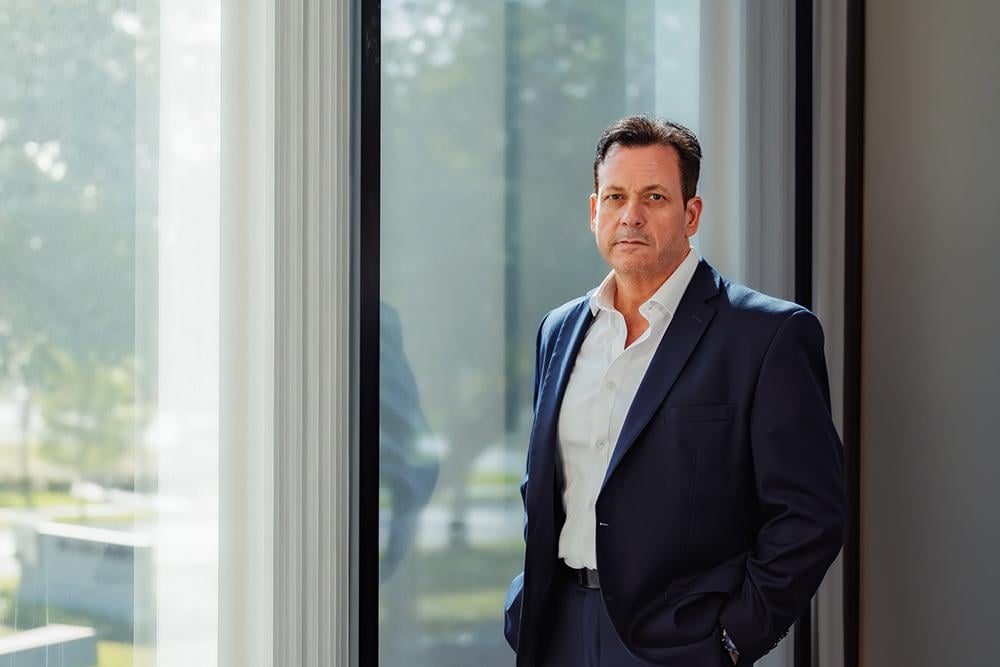
Tommy Hughes, CEO of VAS Aero Services
VAS Aero Services CEO Tommy Hughes speaks with Aviation Week Network about teardown market and USM trends, as well as the company’s efforts to improve sustainability.
VAS Aero Services was acquired by Airbus’ Satair USA subsidiary in 2022. How has the business evolved since then?
We now operate as a wholly owned, independent subsidiary of Satair. While we had enjoyed a long association with Satair, combining forces and resources was the ideal next step. The combination has opened new partnership and sales opportunities for VAS within the Airbus Group and its customer base. Our capabilities in aircraft life-cycle management, transition and teardown, and used serviceable material (USM) serviceability readiness are a perfect complement to Satair’s extensive aftermarket logistics, manufacturing and materials management expertise. I find that VAS and Satair are working more and more in unison; together, we are becoming the industry’s largest source for quality USM parts.
VAS remains diligent and focused on acquiring and suppling USM for multiple fleet types and OEM manufacturers. Both Airbus and Boeing fleets are strategically aligned within our value proposition.
VAS recently has been involved in several projects to acquire and tear down aircraft and engines. What USM and teardown trends are you seeing?
Having managed more than 500 airframes and 700 engines through end-of-life disassembly and parts redistribution over the years, I think we have a valuable perspective on teardown trends and USM demand. We’re certainly seeing greater need for replacement parts as lessors and airline operators are keeping aircraft in service longer due to the large backlog of new aircraft deliveries. That insight led us recently to acquire 26 [Airbus] A320s, seven A330s (formerly operated by China Southern Airlines) and increase our teardown business with the Dr. Peters Group to now include eight A380s. These deals mean that VAS will have access to a greater supply of quality, certified used parts for distribution across our global aftermarket customer base to support the maintenance needs of A320s, A330s and A380s that continue in service.
Are recent supply chain delays and shortages impacting demand for certain assets or types of parts?
Supply chain delays/shortages are absolutely driving very strong demand for key USM parts ranging from serviceable engines, engine parts and landing gears to avionics, life-limited parts and other flight-critical equipment.
With supply chain struggles also existing at the aircraft/engine manufacturer level, delays in new aircraft deliveries are causing mature aircraft to remain in operation longer, thus requiring more maintenance and increasing the demand for parts. The volume of mature aircraft being retired and torn down for spare parts re-selling remains very low compared to past years, meaning there are lower volumes of USM parts available in the market.
The current situation of limited aircraft and engine retirements is driving up USM demand, resulting in premium prices for asset trading transactions. Thanks to our USM market analysis and understanding, VAS is able to structure winning bids for available assets and redistribute those valuable assets through our global marketing channels.
The aviation industry is under increasing pressure to meet sustainability goals, including reducing Scope 3 emissions within the supply chain. How is VAS approaching this growing prioritization of sustainability?
Sustainability is a core tenet of the Airbus Group of companies, of which VAS is a member. Reducing Scope 3 emissions within the supply chain is certainly a key part of that effort, which is why we work with our suppliers and partners to drive solutions that are more mindful of our impact on the environment, reduce waste and conserve energy.
As an example, VAS’s dismantlement partner in Europe, Tarmac Aerosave, recovers 92% of the total weight of an aircraft and responsibly distributes materials through appropriate waste recovery channels.
Closer to home, we are doing our part to reclaim, refurbish and recycle USM parts, reduce waste and be more energy-efficient in our operations. For example, as part of the Airbus Titanium Circularity Project, during various recent teardown assignments, VAS has recycled and returned to production nearly 20 tons of titanium, saving some 460 tons of CO2 emissions. We’re finding that today’s emphasis on sustainability is actually good for business as well as the environment.
What is on VAS’s road map for the near future?
We’ll be looking for acquisition opportunities to bolster our inventory pipeline, and for partnerships with operators and lessors to maximize the residual value of their end-of-service aircraft.
As the aviation business returns to pre-pandemic levels, airline operators are focused on growth and investing in large, multi-year deals to acquire new aircraft to upgrade their fleets. But deliveries on these new aircraft are years away, so keeping current aircraft flying and producing revenue will be the key to profitability for many operators near term. And that plays to VAS’s strengths in life-cycle management, aircraft transition and teardown, and USM parts sourcing and distribution. As we look ahead, we like what we see.





